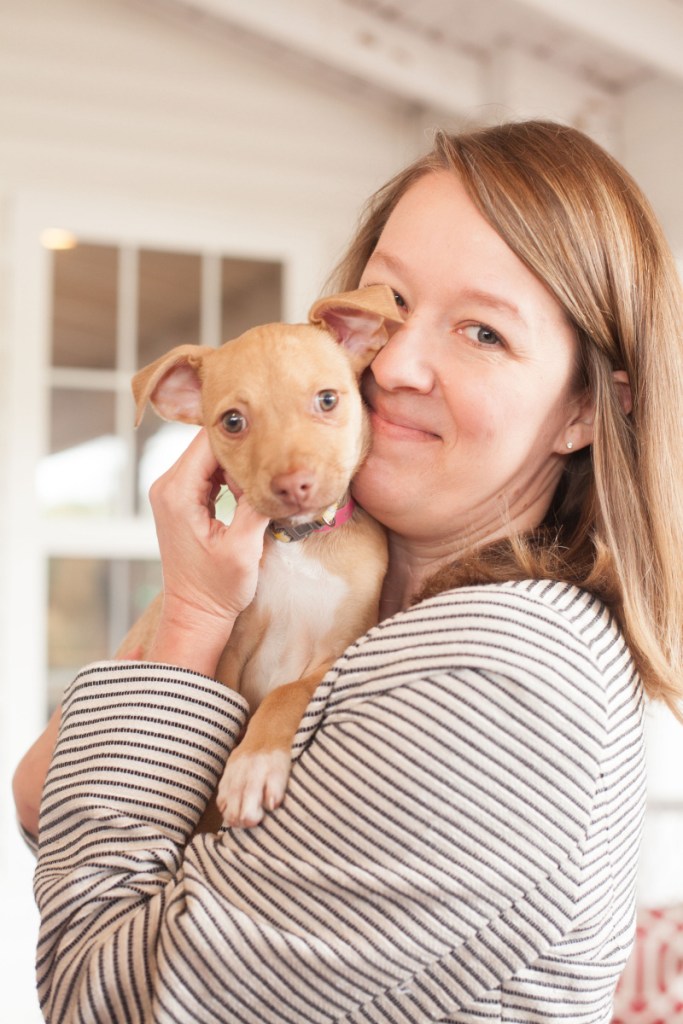Name: Hillary Roberts
Age: 37
Title: Executive director
Organization: Kennebec Valley Humane Society
About: The KVHS mission is to care for, protect and place animals for adoption in lifelong homes and to prevent cruelty to animals by educating its communities in the proper and humane care of all animals.
Website: pethavenlane.org
What’s your biggest challenge now?
Our challenges typically range from fundraising and the constant need to be competitive in providing cutting-edge veterinary care, and behavioral assessment to longterm behavior modification for animals in need of that. In terms of obstacles, it really is a constant need to raise money. We are in the lovely position of being in a community with a lot of wonderful nonprofits that are doing important work that are often scrambling for foundation support and donor dollars and sponsorships. It can be challenging when there are so many nonprofits looking for the same dollars from those same places. Our challenge is always to continue to be relevant and to tell our story in a way that’s meaningful and touches people in a way so that they will continue to be adopters and donors and volunteers.
What’s the best advice anyone has ever given you?
I have been really fortunate in my career. I have worked in the nonprofit industry now for 17 years, and I have had some really amazing mentors, both as a program manager having an executive director I worked for who was fantastic and having many, many board members along the way who have been absolutely instrumental in shaping my career.
Probably the best advice I have received is from a former executive director of mine when I worked for the Red Cross before I worked for my current organization, and she was my boss there. It was to stay true to myself despite everything that goes on around me. That resonates with me still because I work in an industry that I love. Nonprofit organizations are driven by head but guided by heart. So being true to myself and my core beliefs is very good advice, and sometimes you have to remind yourself why you are doing things.
My friend and mentor is Suzan Prendergast, who is now the director of the Bangor Humane Society.
How do you foster creativity in yourself or your staff?
One of the things I love about being a manager — and I have a staff of 17 — is the ability to empower people to be very good at what they do. And I have believed my organization is only as strong as the weakest link in my team. I love that I have a team of people who are subject matter experts in a lot of different areas, if it’s in our foster program or in dog behavior or in the volunteer program. I really want people to be empowered to run their programs and feel like they have some autonomy and can make decisions, and know that I am there to support and guide them.
So I think a lot of their creativity is fostered through their ability to make decisions and to have a sounding board and a source of guidance and support.
What’s your biggest fear?
Realistically, we live in somewhat uncertain times, and whether it’s fears of violence in the community or the world or a change in climate, I just want to make sure there is society and an infrastructure for my children, who are 6 and 3, that will allow them to be creative, good members of their community, in hopefully a profound way. I hope our communities remain safe and we remain cognizant of how important (and) precious our environment is. I can’t stress how many times in my home we have conversations about why we recycle and why it’s important to take care of what we have.
Where will your organization be in five years?
What’s really exciting for the Kennebec Valley Humane Society is that we have a pretty bright future. We’re making plans for how we’re going to better reach our community, not just through shelter pets, but how we’ll hopefully engage with community pets — so, owned animals. We have ideas about wellness programs, about behavioral and training things we can offer for our community. We want to make sure as much as possible we focus on the human-animal bond and understand what it is people in our community are looking for and what they need from us. So in five years, you’ll see us really focusing through assessments and conversations with our community how we can better serve people and the animals they love that are already in their homes, not just shelter animals.
Send questions/comments to the editors.



